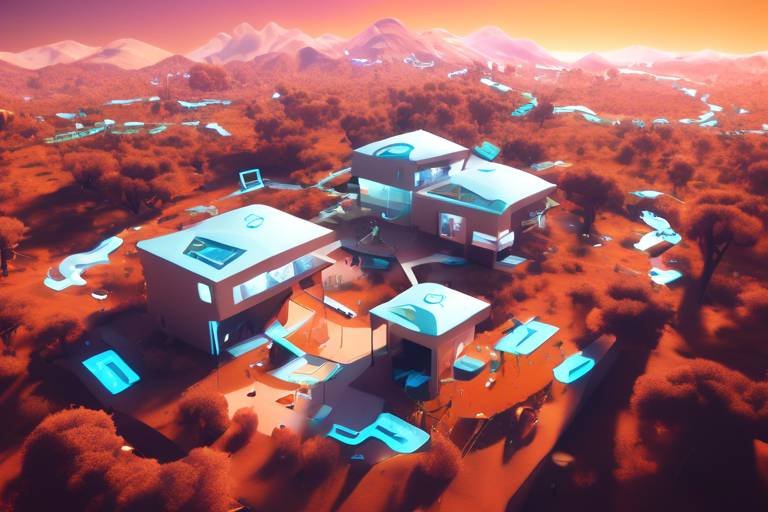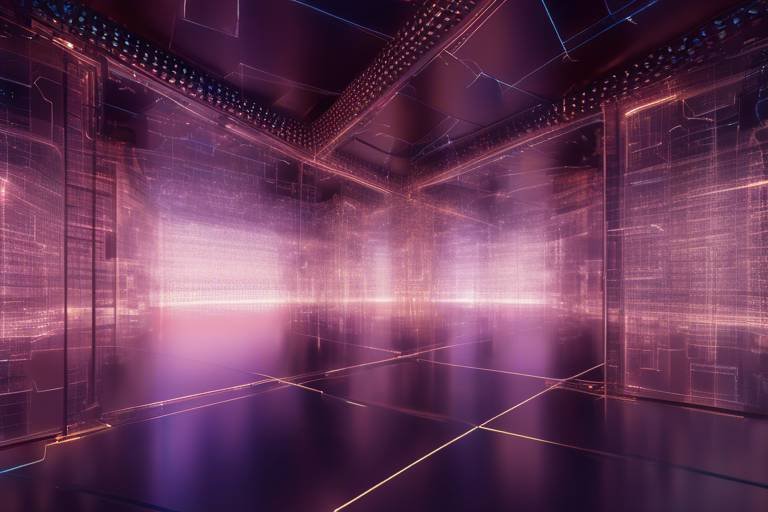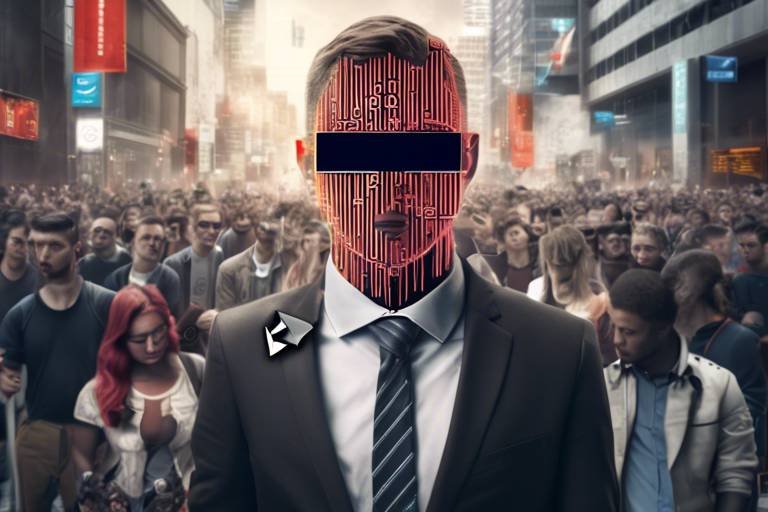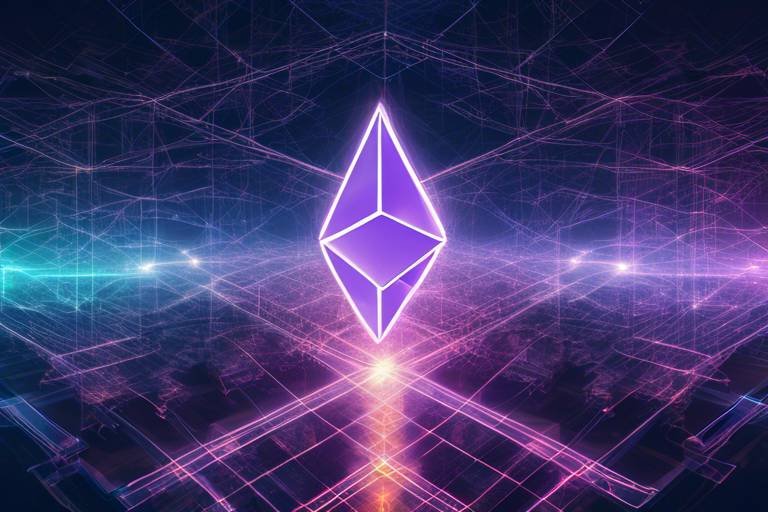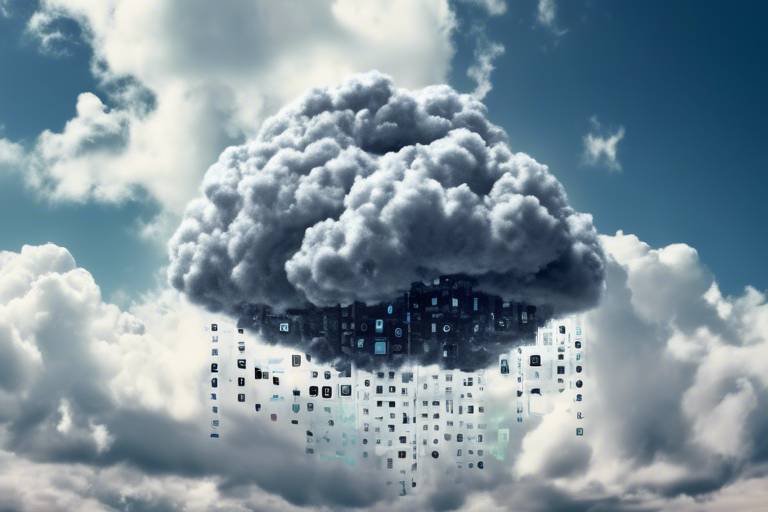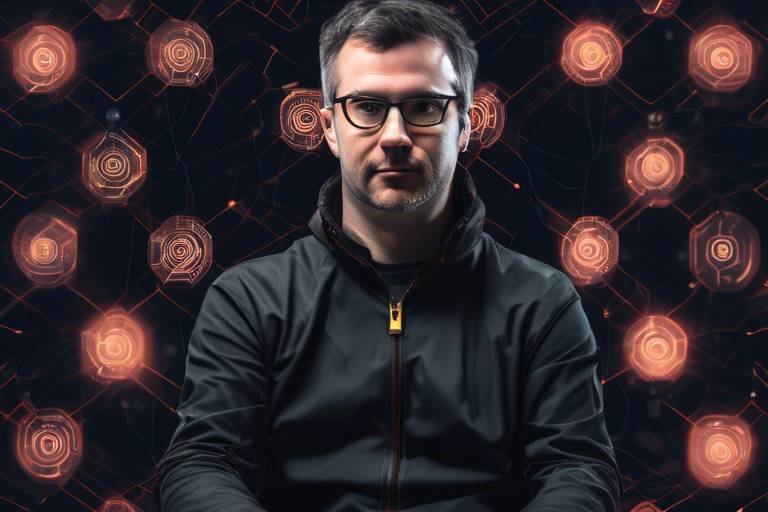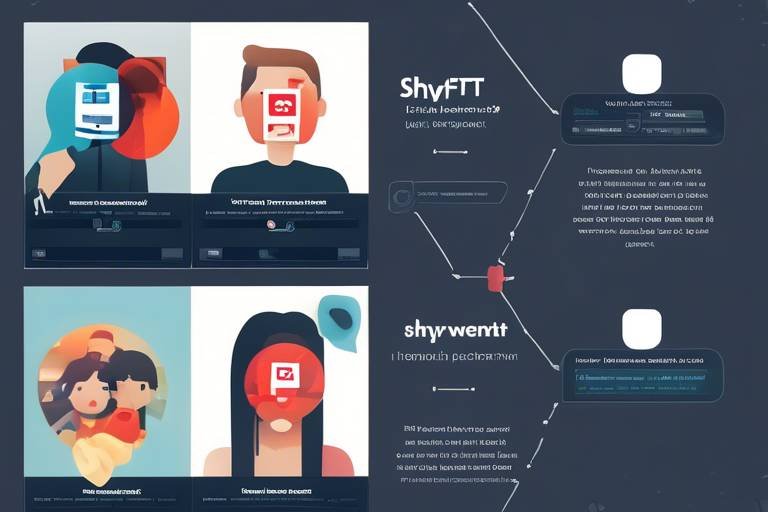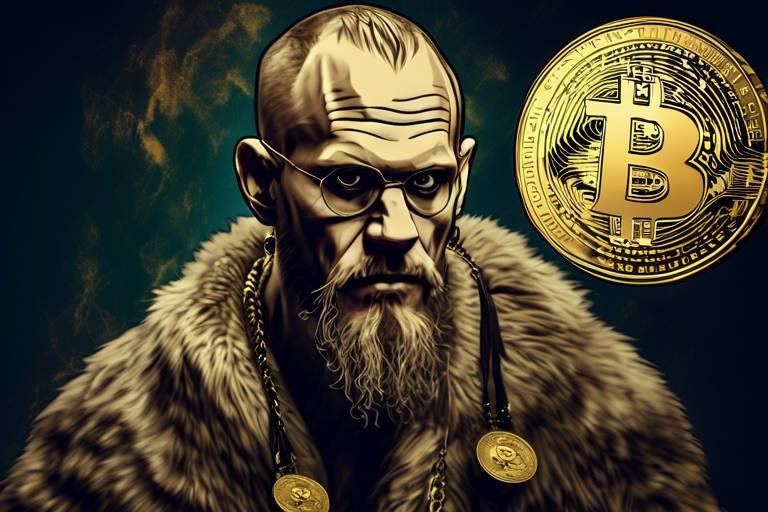Decentraland - The Future of Virtual Real Estate
Imagine a world where you can own a piece of digital land, create your own experiences, and even make money from it. Welcome to Decentraland, a revolutionary virtual reality platform that is reshaping the concept of real estate in the digital age. In this vibrant universe, users can buy, sell, and develop virtual properties, all while interacting with a community that values creativity and innovation. But what exactly is Decentraland, and how does it work? Let’s dive deeper into this fascinating world.
Decentraland is not just another online game; it’s a decentralized virtual world built on blockchain technology. This means that every transaction and ownership record is securely stored on a blockchain, providing transparency and security like never before. Users can create, experience, and monetize content, which fundamentally redefines how we think about real estate. In this digital realm, the possibilities are endless. Imagine hosting a virtual concert on your own land or building an art gallery that showcases your favorite pieces. The platform empowers users to turn their ideas into reality while also generating income.
At the heart of Decentraland lies blockchain technology. This technology ensures that transactions are transparent and secure, allowing users to truly own their virtual assets. Unlike traditional real estate, where ownership can be ambiguous and often requires intermediaries, Decentraland provides a decentralized approach that gives power back to the users. This means you don’t have to worry about a central authority controlling your assets; you have complete ownership and control over your virtual land.
One of the most exciting features of Decentraland is the use of smart contracts. These self-executing contracts automate transactions and ensure that agreements are honored without the need for intermediaries. This not only enhances trust among users but also streamlines the entire process of buying, selling, and developing virtual real estate. Imagine signing a contract for your new virtual property and knowing that it will be executed exactly as agreed, without any delays or complications. It’s like having a personal assistant who never makes mistakes!
Smart contracts come with a plethora of benefits that make them essential for Decentraland’s economy:
- Reduced Transaction Costs: By eliminating the need for middlemen, users save on fees.
- Increased Efficiency: Transactions happen instantly, making the buying and selling process seamless.
- Elimination of Fraud: The transparency of blockchain reduces the risk of scams and fraud.
However, it’s not all sunshine and rainbows. Smart contracts also face challenges, such as coding errors and legal ambiguities. These issues can lead to disputes and complications in the virtual real estate market. Just like in traditional real estate, misunderstandings can arise, and without proper legal frameworks, users may find themselves in tricky situations.
In Decentraland, land ownership is represented by Non-Fungible Tokens (NFTs). These digital tokens allow users to buy, sell, and trade parcels of land, creating a vibrant marketplace for virtual real estate. Each piece of land is unique, much like a piece of art, and its value can increase based on location, development, and demand. This dynamic marketplace is similar to the traditional real estate market, where location and development potential play a crucial role in determining value.
Once you own virtual land in Decentraland, the fun truly begins. Users can unleash their creativity by building unique experiences and applications on their properties. Whether you want to create a virtual theme park, an art gallery, or a concert venue, the platform encourages innovation and creativity. This ability to develop and customize your land not only enhances the user experience but also contributes to the overall ecosystem of Decentraland, attracting visitors and potential customers.
The types of developments in Decentraland are as diverse as the users themselves. Some popular options include:
- Art Galleries: Showcase your favorite artists or your own creations.
- Gaming Experiences: Create immersive games that attract players from around the world.
- Virtual Events: Host concerts, exhibitions, or community gatherings.
Developers can monetize their creations through various strategies, turning their virtual real estate investments into profitable ventures. Some common monetization methods include:
- Ticket Sales: Charge for entry to exclusive events or experiences.
- Advertising: Use virtual billboards to promote brands and earn revenue.
- Virtual Goods: Sell digital items or upgrades within your virtual space.
As Decentraland continues to evolve, it sets the stage for the future of virtual real estate. The platform is influencing how users interact, socialize, and conduct business in digital environments. Just as the internet transformed how we communicate and share information, Decentraland is poised to change the way we think about property ownership and investment.
Emerging trends in virtual real estate are already indicating a growing interest in platforms like Decentraland. Increased investment and the rise of virtual events are just the tip of the iceberg. As more people become aware of the potential of virtual real estate, we can expect to see:
- More investment opportunities in virtual properties.
- Growth in virtual event hosting.
- Innovative business models that leverage virtual environments.
The rise of virtual real estate in Decentraland could also have significant implications for traditional real estate markets. As people begin to see the value in digital properties, we might witness new business models and innovative approaches to property ownership and investment. Imagine a future where virtual and physical real estate coexist, each influencing the other in ways we can’t yet fully comprehend.
What is Decentraland?
Decentraland is a decentralized virtual reality platform where users can buy, sell, and develop virtual real estate using blockchain technology.
How do I buy land in Decentraland?
Users can purchase virtual land through the Decentraland marketplace using cryptocurrency.
What can I build on my land?
You can build anything from games to art galleries or event spaces, limited only by your imagination.
Can I make money in Decentraland?
Yes! You can monetize your virtual creations through ticket sales, advertising, and selling virtual goods.
Is Decentraland safe?
While Decentraland employs blockchain technology for security, users should still be cautious and understand the risks involved in virtual investments.
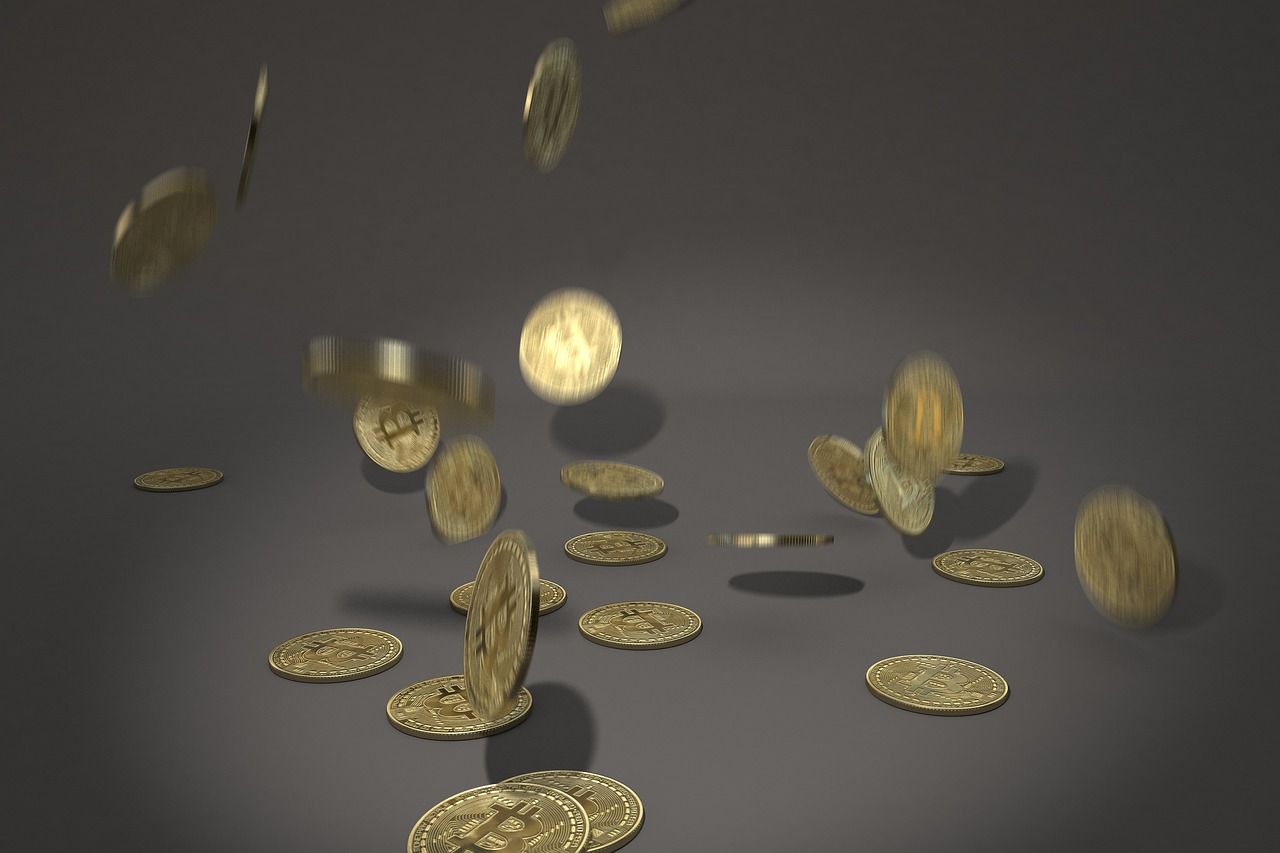
Understanding Decentraland
Decentraland is not just another virtual world; it's a decentralized universe built on blockchain technology that allows users to dive into an immersive experience unlike any other. Imagine stepping into a digital realm where you can create, explore, and even monetize your own experiences. That's exactly what Decentraland offers. Users can buy, sell, and develop virtual real estate, which is a game-changer in how we perceive ownership and interaction in the digital space.
At its core, Decentraland operates on the principle of decentralization, meaning that no single entity controls the platform. Instead, it empowers users by giving them full control over their virtual assets. This is made possible through the use of non-fungible tokens (NFTs), which represent ownership of unique parcels of land within the Decentraland ecosystem. Each piece of land is a digital asset that can be bought, sold, or developed, creating a vibrant marketplace that mirrors the complexities of the real world.
What sets Decentraland apart from traditional virtual worlds is its commitment to user-generated content. Here, creativity knows no bounds. Users can design everything from interactive games to virtual art galleries, transforming their plots of land into anything they can dream up. This not only fosters a sense of community but also encourages collaboration among users, as they work together to build a thriving digital society.
To give you a clearer picture, let’s break down some key aspects of Decentraland:
- Ownership: Each parcel of land is an NFT, providing users with true ownership rights.
- Interactivity: Users can create and interact with content, making the experience highly engaging.
- Monetization: There are numerous ways to earn from your virtual land, from hosting events to selling digital goods.
As we delve deeper into the mechanics of Decentraland, it's essential to understand how this platform is shaping the future of virtual interaction. With its unique blend of blockchain technology and user-driven content, Decentraland is paving the way for a new era of digital ownership. So, whether you're an artist looking to showcase your work or a gamer seeking new adventures, Decentraland offers a space where your imagination can run wild.
Q: What is Decentraland?
A: Decentraland is a decentralized virtual world where users can buy, sell, and develop virtual real estate using blockchain technology.
Q: How do I purchase land in Decentraland?
A: Users can purchase land through the Decentraland Marketplace using MANA, the platform's native cryptocurrency.
Q: Can I monetize my land in Decentraland?
A: Yes, users can monetize their land through various methods, including ticket sales for events, advertising, and selling virtual goods.

The Blockchain Technology Behind Decentraland
At the heart of Decentraland lies a robust and innovative technology: blockchain. This decentralized ledger system is what makes Decentraland not just another virtual world, but a groundbreaking platform for digital ownership. Imagine a world where every transaction is transparent, secure, and verifiable. That’s the power of blockchain technology in Decentraland. It allows users to buy, sell, and trade virtual real estate with complete confidence, knowing that their assets are protected from fraud and unauthorized access.
Blockchain technology ensures that all transactions are recorded in a way that is both immutable and decentralized. This means that once a transaction is logged, it cannot be altered or deleted, providing an unprecedented level of security. Users can verify ownership of their virtual land through unique digital tokens known as Non-Fungible Tokens (NFTs). These NFTs serve as proof of ownership and are stored on the blockchain, giving users true ownership of their virtual assets.
Moreover, the decentralized nature of blockchain eliminates the need for a central authority, allowing users to interact directly with one another. This peer-to-peer model not only enhances the sense of community but also reduces costs associated with intermediaries. Think of it as a digital marketplace where you can trade goods without the need for a middleman, making transactions faster and cheaper.
Another fascinating aspect of Decentraland's blockchain infrastructure is the implementation of smart contracts. These self-executing contracts are coded with the terms of the agreement directly written into lines of code. When certain conditions are met, the contract automatically executes the transaction. This automation not only streamlines processes but also enhances trust among users. In a world where trust is paramount, smart contracts are a game-changer.
The advantages of smart contracts are numerous:
- Reduced Transaction Costs: By eliminating intermediaries, users save on fees.
- Increased Efficiency: Transactions are executed automatically, speeding up the process.
- Elimination of Fraud: The transparent nature of blockchain makes fraudulent activities nearly impossible.
These benefits make smart contracts essential for the functionality of Decentraland's economy, allowing users to engage in transactions with peace of mind.
However, it’s not all sunshine and rainbows. Smart contracts do come with their own set of challenges. For instance, coding errors can lead to unintended consequences, resulting in disputes that may require legal intervention. Additionally, the legal status of smart contracts is still evolving, which can create ambiguities in enforcement. This highlights the importance of meticulous coding and understanding the legal landscape surrounding these digital agreements.
In summary, the blockchain technology behind Decentraland is what sets it apart from traditional virtual platforms. It empowers users with true ownership, enhances security, and fosters a vibrant community. As we continue to explore the possibilities of virtual real estate, it’s clear that blockchain will play a pivotal role in shaping the future of digital interactions.
What is Decentraland?
Decentraland is a decentralized virtual reality platform where users can buy, sell, and develop virtual real estate, creating unique experiences and applications.
How does blockchain technology work in Decentraland?
Blockchain technology in Decentraland ensures transparency and security in transactions, allowing users to own their virtual assets without centralized control.
What are smart contracts?
Smart contracts are self-executing contracts with the terms of the agreement directly written into code, automating transactions and enhancing trust among users.
What are NFTs?
NFTs, or Non-Fungible Tokens, are unique digital tokens that represent ownership of virtual land in Decentraland, stored securely on the blockchain.
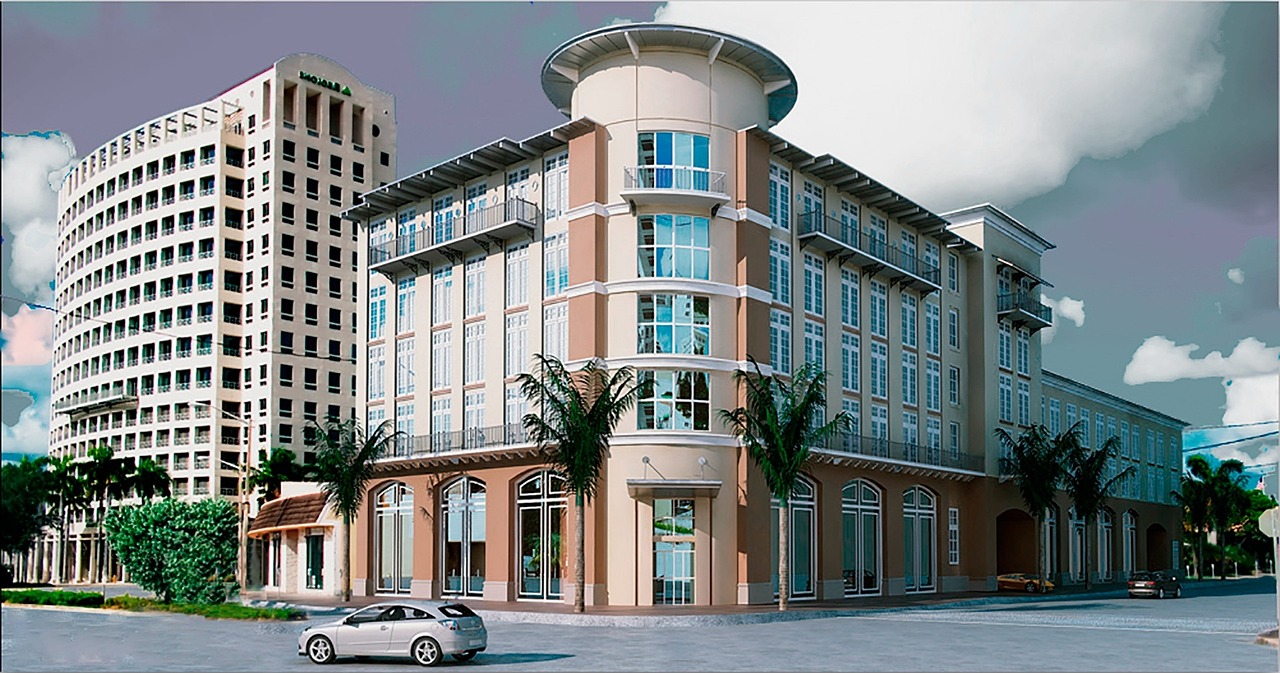
Smart Contracts in Decentraland
Smart contracts are the backbone of Decentraland's virtual economy, acting as the invisible hand that facilitates transactions and interactions within this digital universe. Imagine a world where agreements are automatically executed without the need for a middleman—this is precisely what smart contracts bring to the table. These self-executing contracts, with the terms of the agreement directly written into code, ensure that all parties involved can trust the process without second-guessing motives or intentions.
When you buy a piece of virtual land in Decentraland, a smart contract is triggered, automating the entire transaction process. This means that once you click "buy," the deed to your virtual property is transferred seamlessly to your digital wallet, all while ensuring that the seller receives their payment promptly. This level of efficiency is a game-changer, especially in a world where traditional real estate transactions can take weeks or even months to finalize.
Moreover, smart contracts enhance transparency and security in the Decentraland ecosystem. Since every transaction is recorded on the blockchain, there’s a public ledger that anyone can access. This not only helps in verifying ownership but also in tracking the history of transactions associated with each virtual property. In a realm where digital assets can be easily created and destroyed, having a reliable record is crucial.
However, it’s essential to recognize that while smart contracts offer numerous benefits, they are not without their challenges. For instance, coding errors can lead to unintended consequences, potentially locking users out of their assets or causing disputes over ownership. Additionally, the legal status of smart contracts remains a gray area in many jurisdictions, which can complicate matters further. The need for clear legal frameworks around these contracts is becoming increasingly apparent as the virtual real estate market grows.
In summary, smart contracts are a revolutionary feature of Decentraland that not only streamline transactions but also foster a sense of trust and security among users. As the platform continues to evolve, addressing the challenges associated with smart contracts will be vital to ensuring a robust and thriving virtual economy.
- What are smart contracts? Smart contracts are self-executing contracts with the terms of the agreement directly written into code, ensuring automatic execution without intermediaries.
- How do smart contracts work in Decentraland? When a transaction occurs, a smart contract is triggered to automate the process, ensuring that ownership and payments are transferred seamlessly.
- What are the benefits of using smart contracts? Benefits include increased efficiency, reduced transaction costs, enhanced security, and improved transparency in the virtual economy.
- What challenges do smart contracts face? Challenges include coding errors, legal ambiguities, and the need for clear regulatory frameworks to address potential disputes.

Benefits of Smart Contracts
Smart contracts are the backbone of Decentraland's virtual economy, offering a multitude of benefits that enhance the overall user experience. First and foremost, they automate transactions, which means that once a contract is set in motion, it executes itself without the need for human intervention. This automation not only speeds up processes but also reduces the potential for human error, making transactions more reliable.
Another significant advantage of smart contracts is the reduction in costs. Traditional transactions often involve intermediaries—think banks or real estate agents—who charge fees for their services. In contrast, smart contracts eliminate these middlemen, allowing users to keep more of their hard-earned money. Imagine buying a house without paying hefty commissions; that’s the kind of financial freedom smart contracts can offer in the virtual realm.
Moreover, the transparency provided by smart contracts is unparalleled. Every transaction is recorded on the blockchain, which is a public ledger. This means that all parties involved can verify the details of the transaction, ensuring that everyone is on the same page. This level of transparency fosters a sense of trust among users, which is crucial in any marketplace. When you know that your agreement is secure and visible to all, it builds confidence in the ecosystem.
Additionally, smart contracts are designed to be tamper-proof. Once a contract is deployed on the blockchain, it cannot be altered or deleted. This immutability protects users from fraud and ensures that agreements are upheld as intended. In the unpredictable world of virtual real estate, knowing that your contract is secure provides peace of mind.
However, it’s essential to acknowledge that while smart contracts come with numerous benefits, they are not without challenges. Issues such as coding errors or legal ambiguities can arise, potentially leading to disputes. Nonetheless, the advantages they offer—like increased efficiency, reduced costs, and enhanced trust—far outweigh these challenges.
In conclusion, smart contracts are revolutionizing the way transactions are conducted in Decentraland. They provide a robust framework that not only simplifies the buying and selling process but also enhances the overall integrity of the virtual real estate market. As users continue to embrace this technology, the future of virtual ownership looks incredibly promising.
- What are smart contracts? Smart contracts are self-executing contracts with the terms of the agreement directly written into code. They run on the blockchain, ensuring transparency and security.
- How do smart contracts reduce costs? By eliminating the need for intermediaries, smart contracts allow users to engage directly with one another, significantly lowering transaction fees.
- Are smart contracts secure? Yes, smart contracts are designed to be tamper-proof and immutable once deployed on the blockchain, providing a high level of security.
- What challenges do smart contracts face? Smart contracts can encounter issues like coding errors and legal ambiguities, which may lead to disputes among users.

Challenges of Smart Contracts
While smart contracts are hailed as the backbone of Decentraland's economy, they are not without their challenges. One of the most significant issues is the potential for coding errors. Just like a small typo can derail a complex computer program, a bug in a smart contract can lead to unintended consequences. Imagine investing heavily in a piece of virtual land, only to find that a flaw in the contract allows someone else to claim ownership. This risk can deter new users from engaging with the platform, as they may fear losing their investments due to technical mishaps.
Moreover, there are legal ambiguities surrounding smart contracts. The legal framework for digital assets is still evolving, and what happens if a dispute arises? Without a clear legal precedent, resolving issues can become a convoluted process. Users might find themselves in a gray area where the law is not entirely on their side, leading to uncertainty and hesitation in making transactions.
Another challenge is the complexity of the technology. Not everyone is a tech wizard, and the intricate nature of blockchain and smart contracts can be intimidating for the average user. This can create a barrier to entry, limiting the audience to those who are already familiar with cryptocurrency and blockchain technology. If Decentraland wants to attract a broader user base, it must find ways to simplify the user experience and educate newcomers about how to navigate this virtual landscape safely.
To illustrate these challenges, consider the following table that summarizes the key issues faced by smart contracts in Decentraland:
| Challenge | Description |
|---|---|
| Coding Errors | Flaws in the code can lead to significant losses and ownership disputes. |
| Legal Ambiguities | Lack of clear legal frameworks can complicate dispute resolution. |
| Complexity | The technical nature of smart contracts can deter average users from participating. |
In conclusion, while smart contracts are revolutionary, they come with their own set of challenges that need to be addressed. The future of Decentraland and its users depends on overcoming these hurdles to create a more secure, accessible, and user-friendly environment for virtual real estate transactions.
- What are smart contracts? Smart contracts are self-executing contracts with the terms of the agreement directly written into code.
- What challenges do smart contracts face? They face issues such as coding errors, legal ambiguities, and complexity that can deter users.
- How can users protect themselves when using smart contracts? Users should conduct thorough research, seek legal advice if necessary, and use trusted platforms to mitigate risks.
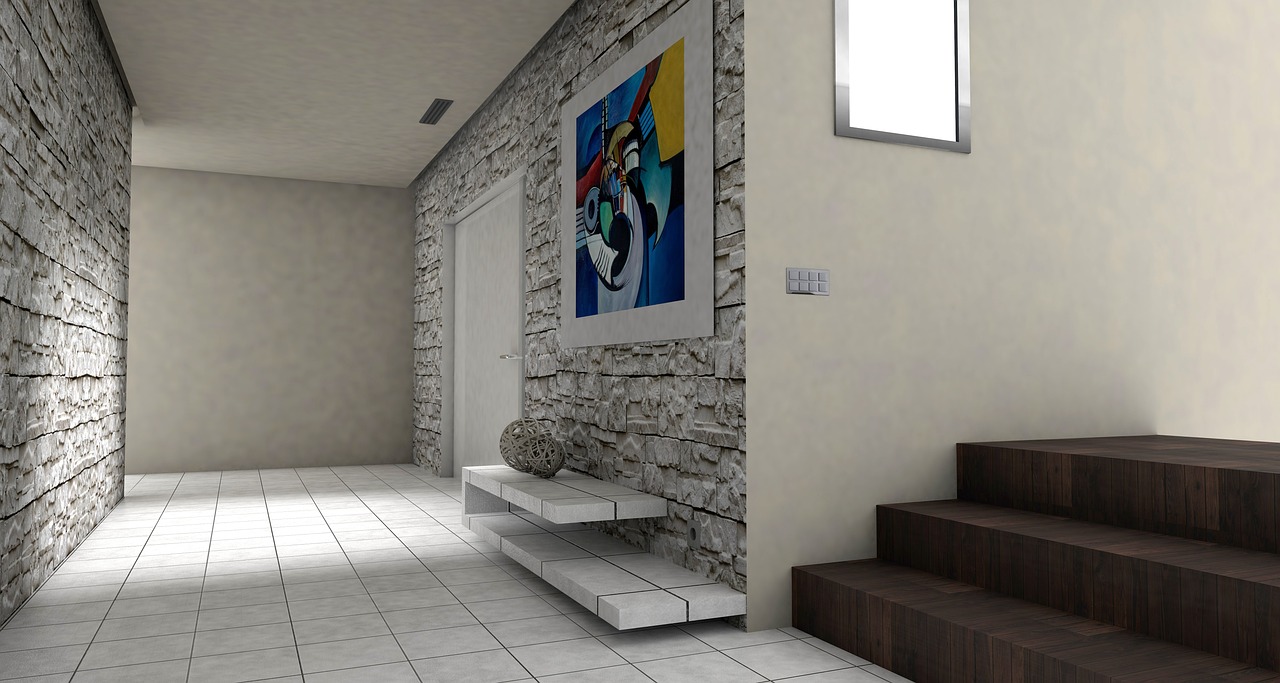
Land Ownership and Sales
In Decentraland, the concept of land ownership is not just a novel idea; it's a revolutionary approach to the way we perceive property in the digital age. Each parcel of land in this virtual universe is represented by a unique Non-Fungible Token (NFT), which acts as a digital certificate of ownership. This means that when you buy a piece of land in Decentraland, you’re not just acquiring a virtual space; you’re investing in a digital asset that is truly yours, secured by blockchain technology. Imagine owning a piece of the internet, where you can build, create, and interact with others in ways that were previously unimaginable!
The marketplace for virtual land in Decentraland is vibrant and dynamic. Users can buy, sell, and trade parcels of land, creating a bustling economy that mirrors traditional real estate markets. The buying process is straightforward; users can browse available plots on the Decentraland marketplace, view their attributes, and make purchases using the platform's native cryptocurrency, MANA. It's like shopping for a house, but instead, you're browsing through virtual landscapes that could be the next big attraction in the metaverse.
One of the most exciting aspects of land ownership in Decentraland is the opportunity it presents for creativity and innovation. Owners can develop their land in a multitude of ways, from creating stunning art galleries to building immersive gaming experiences. This not only enhances the value of their virtual property but also contributes to the overall ecosystem of Decentraland. The more engaging and interactive the space, the higher the potential for attracting visitors and generating income.
However, navigating the land sales process isn't without its challenges. As with any marketplace, potential buyers should conduct thorough research before making a purchase. Factors to consider include the location of the land (some areas are more desirable than others), the current market trends, and potential future developments in the area. Just like in the real world, location can significantly impact the value of virtual real estate.
Here’s a quick overview of the land ownership process in Decentraland:
| Step | Description |
|---|---|
| 1 | Create a Decentraland account and set up a digital wallet. |
| 2 | Purchase MANA cryptocurrency to use for transactions. |
| 3 | Browse the marketplace for available land parcels. |
| 4 | Make an offer or purchase land directly. |
| 5 | Receive your NFT as proof of ownership. |
In conclusion, land ownership in Decentraland is not merely a transaction; it's an opportunity to be part of a burgeoning digital landscape. As more users flock to this virtual world, the demand for land will likely continue to rise, making it a potentially lucrative investment. So, if you're considering diving into the world of virtual real estate, Decentraland offers an exciting platform to explore your creative potential and financial aspirations.
- What is Decentraland? Decentraland is a virtual reality platform that allows users to buy, sell, and develop virtual real estate, all powered by blockchain technology.
- How do I buy land in Decentraland? You can buy land by creating an account, setting up a digital wallet, purchasing MANA cryptocurrency, and then browsing the marketplace.
- What can I do with my virtual land? You can develop your land into various experiences, such as games, art galleries, or event spaces, and even monetize them.
- Is land ownership in Decentraland secure? Yes, land ownership is secured by blockchain technology, ensuring that your ownership rights are protected.
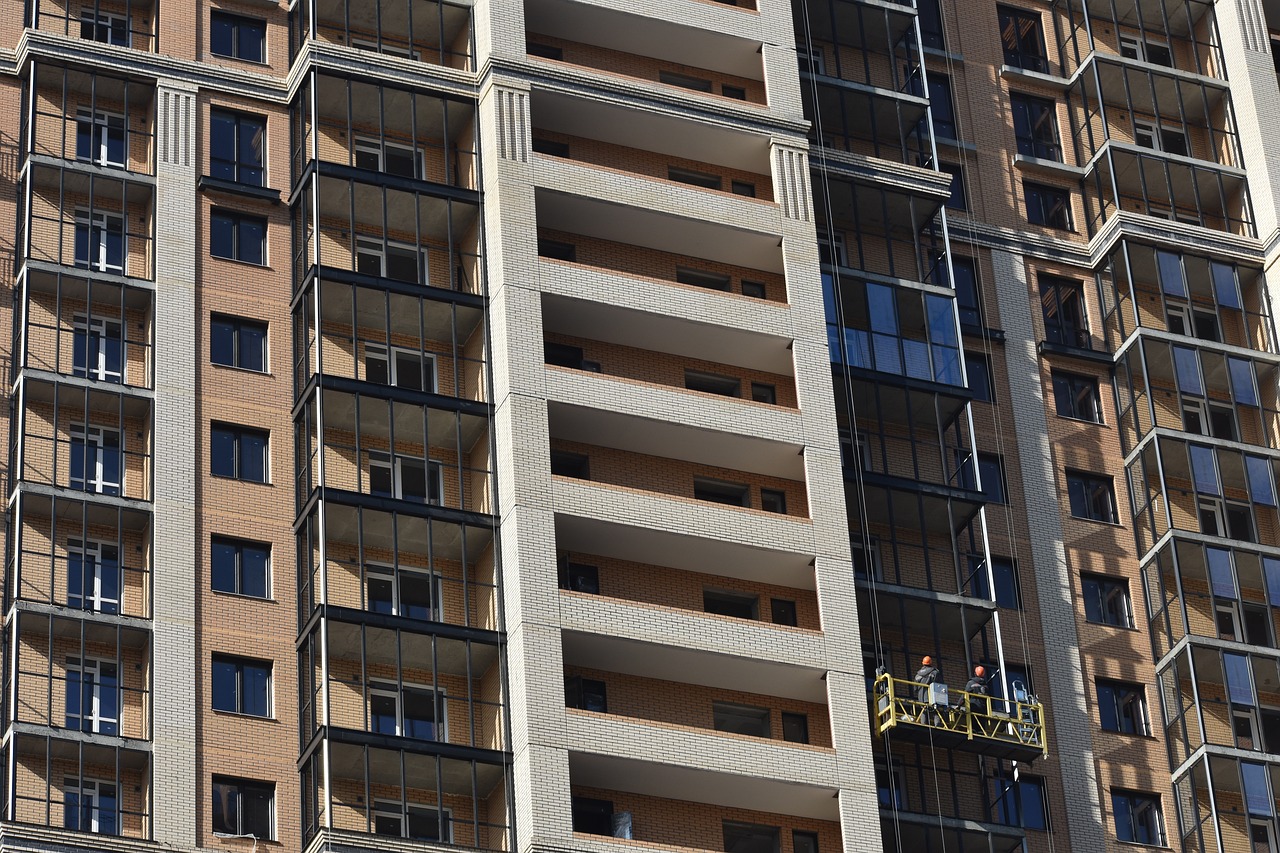
Building and Developing in Decentraland
In Decentraland, the possibilities for building and developing are as vast as your imagination. Users have the freedom to transform their virtual parcels of land into anything they desire, from vibrant art galleries to thrilling gaming arenas. This platform not only encourages creativity but also fosters a sense of community as developers share their unique experiences with others. Imagine stepping into a world where you can craft your own reality; that's the magic of Decentraland!
One of the most exciting aspects of building in Decentraland is the ability to create interactive experiences. Developers can utilize a range of tools and assets to design environments that engage visitors. For instance, you could create a virtual concert venue where users can enjoy live music or a museum showcasing digital art from various creators. The opportunities are endless, and each creation contributes to the rich tapestry of the Decentraland ecosystem.
When it comes to the types of developments, Decentraland offers a plethora of options. Here are some popular categories:
- Art Galleries: Showcase your artwork or curate exhibitions featuring other artists.
- Games: Design immersive gaming experiences that attract players from around the globe.
- Social Spaces: Create areas for users to hang out, chat, and forge new friendships.
- Events: Host virtual events, such as conferences, workshops, or parties, that draw in crowds.
Moreover, developers can monetize their virtual creations through various strategies. For instance, you can charge an entry fee for exclusive events, sell virtual goods, or even offer advertising space within your space. This not only allows you to recoup your investment but also opens the door to potential profits. Think of it as turning your digital playground into a thriving business!
However, building in Decentraland isn't just about construction; it also involves community engagement. Developers are encouraged to interact with their audience, gather feedback, and make improvements based on user experiences. This collaborative approach helps ensure that the virtual world remains vibrant and appealing, fostering a sense of ownership among its users.
As Decentraland continues to evolve, the tools and resources available for builders are also expanding. The platform frequently updates its developer documentation and provides access to a community of creators who share insights and tips. This collaborative spirit not only enhances the quality of the developments but also strengthens the bonds between users, making Decentraland a truly unique digital environment.
In conclusion, building and developing in Decentraland is an exciting venture that combines creativity, technology, and community. Whether you're a seasoned developer or a newcomer eager to explore, this virtual world offers a canvas for your imagination. So, why not dive in and start crafting your digital legacy today?
Q1: Do I need coding skills to build in Decentraland?
A1: While coding skills can be helpful, Decentraland provides user-friendly tools that allow anyone to create experiences without extensive programming knowledge.
Q2: How can I monetize my virtual creations?
A2: You can monetize through ticket sales, virtual goods, advertising, and hosting events. The key is to create engaging experiences that attract users.
Q3: Is there a limit to what I can build in Decentraland?
A3: There are guidelines and best practices to follow, but the creative possibilities are nearly limitless. Your imagination is the only boundary!
Q4: How do I acquire land in Decentraland?
A4: You can purchase virtual land as NFTs through the Decentraland Marketplace, where users buy, sell, and trade parcels of land.
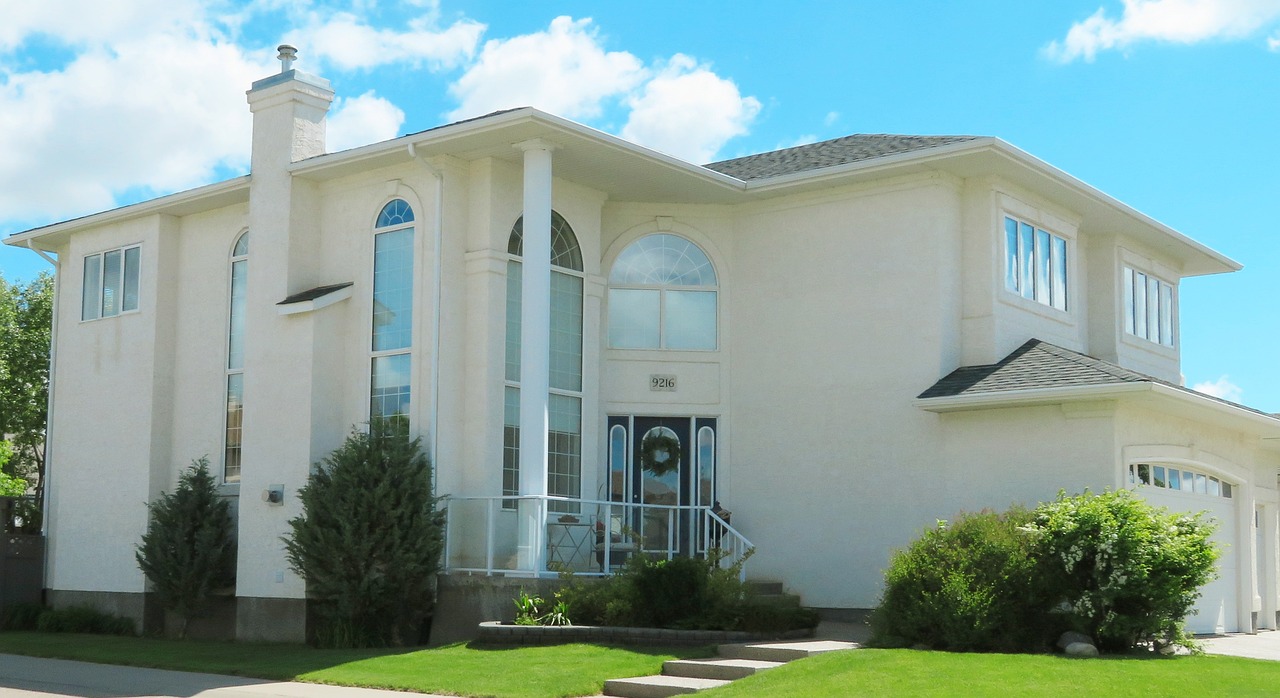
Types of Developments
In the vibrant world of Decentraland, the possibilities for development are as limitless as one's imagination. Users can create a variety of unique experiences on their virtual land, each contributing to the rich tapestry of this decentralized universe. The types of developments can range from simple plots of land adorned with art installations to complex, interactive environments that engage visitors in ways that traditional real estate simply cannot. Think of Decentraland as a blank canvas; the only limit is the creator's creativity.
One of the most popular types of developments in Decentraland includes art galleries. Artists can showcase their work in virtual spaces, allowing for an immersive experience that transcends the physical limitations of a traditional gallery. Visitors can wander through these digital exhibitions, interact with the art, and even purchase pieces as NFTs, making the experience both engaging and profitable.
Another exciting category is gaming experiences. Developers can create entire games that utilize the virtual land, offering users a chance to play, compete, and socialize. These gaming environments can include anything from simple arcade-style games to complex role-playing adventures. Players can earn rewards, trade in-game assets, and even participate in tournaments, enhancing the sense of community and competition.
Moreover, event spaces have become increasingly popular. Users can host concerts, conferences, and social gatherings, drawing in crowds from all over the globe. Imagine attending a virtual concert where you can interact with other fans, purchase exclusive merchandise, and even meet the artists themselves—all from the comfort of your home. This kind of engagement is revolutionizing how we think about events and gatherings.
Additionally, developers can create interactive experiences that engage users in unique ways. These can include virtual tours, educational platforms, and even immersive storytelling environments. For instance, a user might develop a virtual tour of a historical site, allowing visitors to explore and learn in a fully interactive setting. This not only enhances education but also adds layers of engagement that traditional methods cannot offer.
In summary, the types of developments in Decentraland are diverse and ever-evolving. Each project adds to the overall ecosystem, fostering a culture of creativity and innovation. Whether you’re an artist, a gamer, or an event organizer, Decentraland provides the tools and platform to bring your visions to life in the digital realm. As the platform continues to grow, we can expect to see even more exciting developments that push the boundaries of what’s possible in virtual real estate.
- What types of developments can I create in Decentraland? You can create art galleries, gaming experiences, event spaces, interactive educational platforms, and much more.
- How can I monetize my developments? Monetization can occur through ticket sales, advertising, virtual goods, and hosting events.
- Do I need coding skills to develop in Decentraland? While coding skills can be beneficial, Decentraland offers user-friendly tools that allow those without programming knowledge to create and develop.
- Can I collaborate with others on projects? Yes! Collaboration is encouraged in Decentraland, allowing for richer and more diverse experiences.
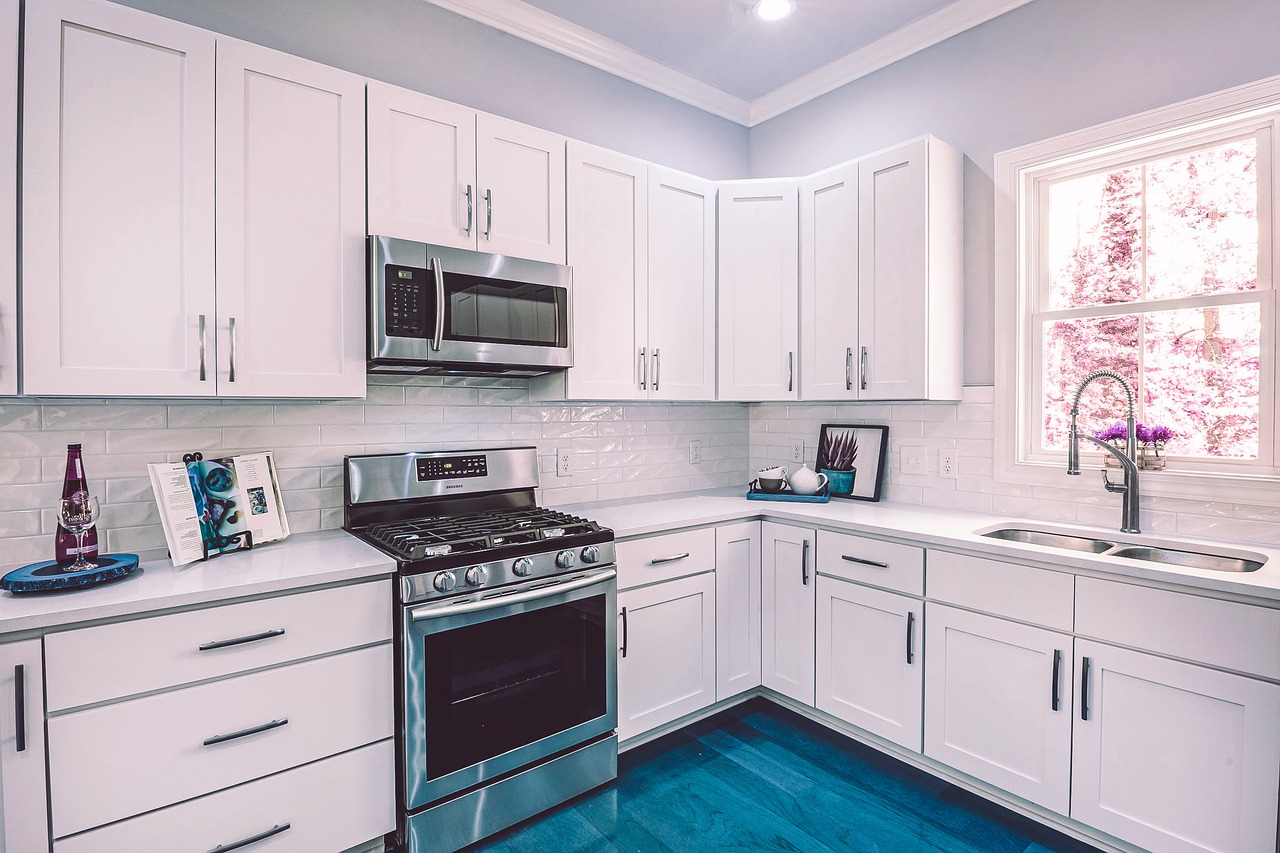
Monetization Strategies
In the vibrant world of Decentraland, where creativity meets commerce, developers have a plethora of at their disposal. These strategies not only allow users to recoup their investments but also enable them to thrive in an ever-evolving digital marketplace. Imagine building a stunning virtual art gallery or an immersive gaming experience—what if you could turn those creations into a source of income? That's the beauty of Decentraland!
One of the most prevalent methods of monetization is through ticket sales. Developers can host events such as concerts, exhibitions, or exclusive parties, charging users for entry. This not only generates revenue but also enhances the community experience, drawing in visitors who may not have otherwise explored the virtual landscape. For instance, a popular DJ could perform live in Decentraland, and attendees would pay for the chance to enjoy the show from the comfort of their virtual homes.
Another lucrative avenue is advertising. Just like in the real world, virtual landowners can lease out advertising space to brands looking to reach a digital-savvy audience. Imagine a billboard promoting the latest virtual reality headset or a pop-up shop for a new gaming console right in the heart of Decentraland! This not only provides income for landowners but also creates a vibrant ecosystem where brands can engage with potential customers in innovative ways.
Moreover, the sale of virtual goods presents a significant opportunity for monetization. Users can create and sell unique items, such as clothing, accessories, or even virtual pets, enhancing the overall experience in Decentraland. This not only adds a layer of personalization for users but also fosters a thriving economy where creators are rewarded for their ingenuity. Think about it: if a user designs a trendy outfit for their avatar, they can sell it to other users, turning their creativity into cash!
Additionally, developers can explore sponsorship deals with companies looking to promote their products or services within the virtual environment. This could involve branded experiences or exclusive partnerships that elevate the overall user experience while providing a steady stream of revenue. For instance, a virtual coffee shop could partner with a real-world coffee brand, offering users discounts or exclusive virtual items in exchange for their engagement.
In summary, Decentraland offers a myriad of monetization strategies that empower users to transform their virtual real estate into profitable ventures. Whether through ticket sales, advertising, the sale of virtual goods, or sponsorship deals, the possibilities are as limitless as the imagination itself. As the platform continues to grow, so too will the opportunities for creative entrepreneurs to make their mark in this digital frontier.
- What is Decentraland?
Decentraland is a decentralized virtual world where users can buy, sell, and develop virtual real estate using blockchain technology.
- How can I monetize my virtual land in Decentraland?
You can monetize your virtual land through ticket sales, advertising, selling virtual goods, and sponsorship deals.
- What are NFTs in Decentraland?
NFTs, or Non-Fungible Tokens, represent ownership of virtual land in Decentraland, allowing users to buy, sell, and trade properties securely.
- Can I host events in Decentraland?
Yes! You can host various events such as concerts, art exhibitions, and parties, charging for entry to monetize your virtual space.
- Is Decentraland safe for transactions?
Yes, Decentraland utilizes blockchain technology, which ensures transparency and security for all transactions within the platform.
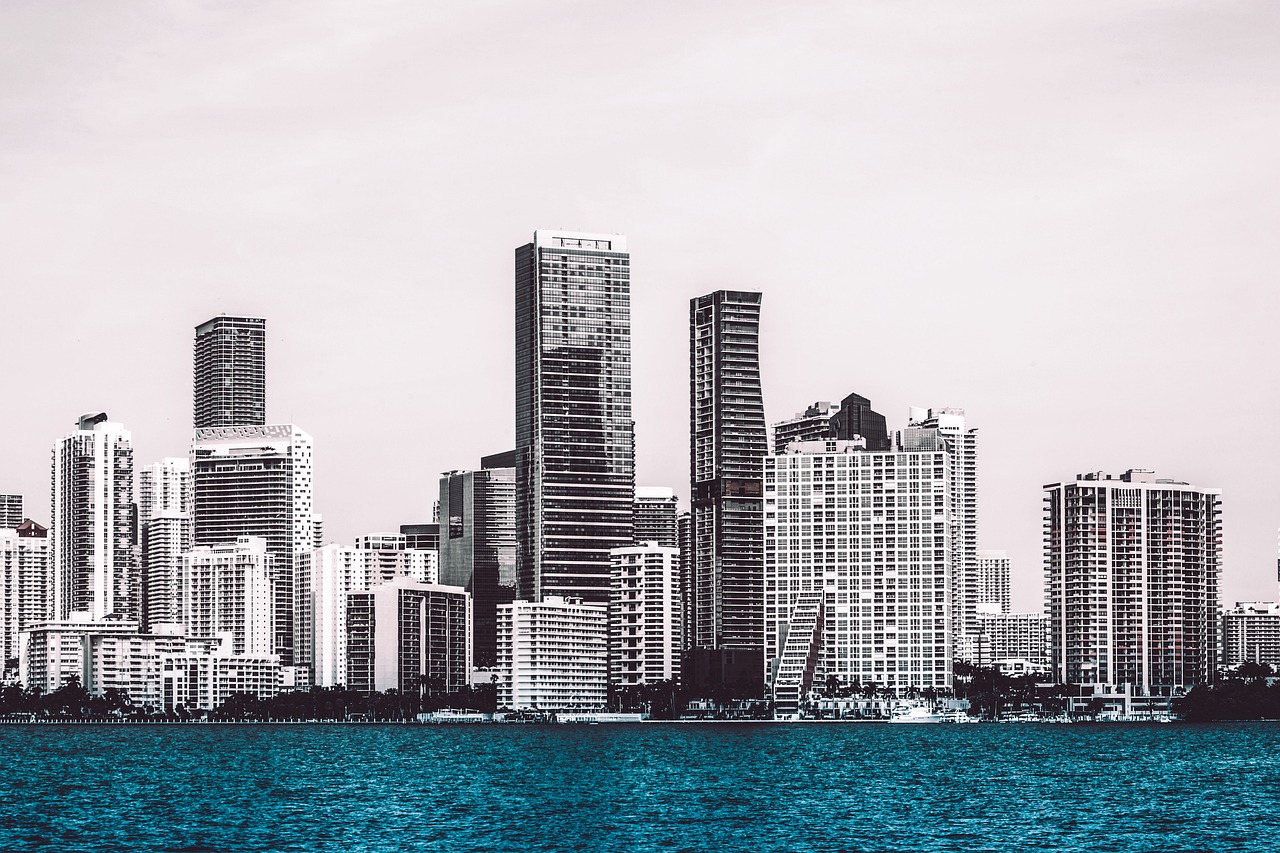
The Future of Virtual Real Estate
The landscape of virtual real estate is rapidly evolving, and platforms like Decentraland are at the forefront of this transformation. With the advent of blockchain technology and the increasing acceptance of digital assets, we are witnessing a significant shift in how people perceive ownership and interaction in virtual environments. Imagine a world where your digital property can be just as valuable, if not more so, than your physical assets. This isn't just a fantasy; it's becoming a reality.
As Decentraland and similar platforms gain traction, they are setting the stage for a new era of digital ownership. The potential market trends indicate a surge in investment in virtual properties, driven by both individual users and corporate entities. Companies are beginning to recognize the benefits of establishing a presence in these virtual worlds, leading to innovative marketing strategies and new business models that leverage the unique capabilities of digital environments.
One of the most exciting aspects of virtual real estate is its ability to host virtual events. As more people turn to online experiences, the demand for immersive environments where they can socialize, attend concerts, or participate in conferences is skyrocketing. This trend is not just a passing phase; it signifies a profound change in how we engage with one another in both personal and professional contexts. Virtual real estate offers a canvas for creativity and interaction, allowing users to create spaces that resonate with their interests and aspirations.
However, the impact of virtual real estate extends beyond just social interactions. It is poised to influence traditional real estate markets in several ways. For instance, as virtual properties appreciate in value, they could prompt a reevaluation of how we view property ownership and investment. Traditional investors may start to diversify their portfolios by including digital assets, leading to a convergence of real estate strategies across both physical and virtual domains.
In conclusion, the future of virtual real estate is bright and full of potential. As technology continues to advance, and as more people become comfortable with the concept of digital ownership, we can expect to see a flourishing ecosystem where creativity, commerce, and community thrive. The possibilities are endless, and Decentraland is just the beginning of this exciting journey into the digital frontier.
- What is Decentraland? Decentraland is a virtual reality platform built on blockchain technology, allowing users to buy, sell, and develop virtual real estate.
- How does virtual real estate work? Virtual real estate operates through NFTs (non-fungible tokens), which represent ownership of digital land and assets within the platform.
- What are the benefits of investing in virtual real estate? Benefits include the potential for high returns, the ability to create unique experiences, and the growing trend of digital ownership.
- Can I monetize my virtual property? Yes, users can monetize their virtual properties through various methods, such as ticket sales, advertisements, and selling virtual goods.
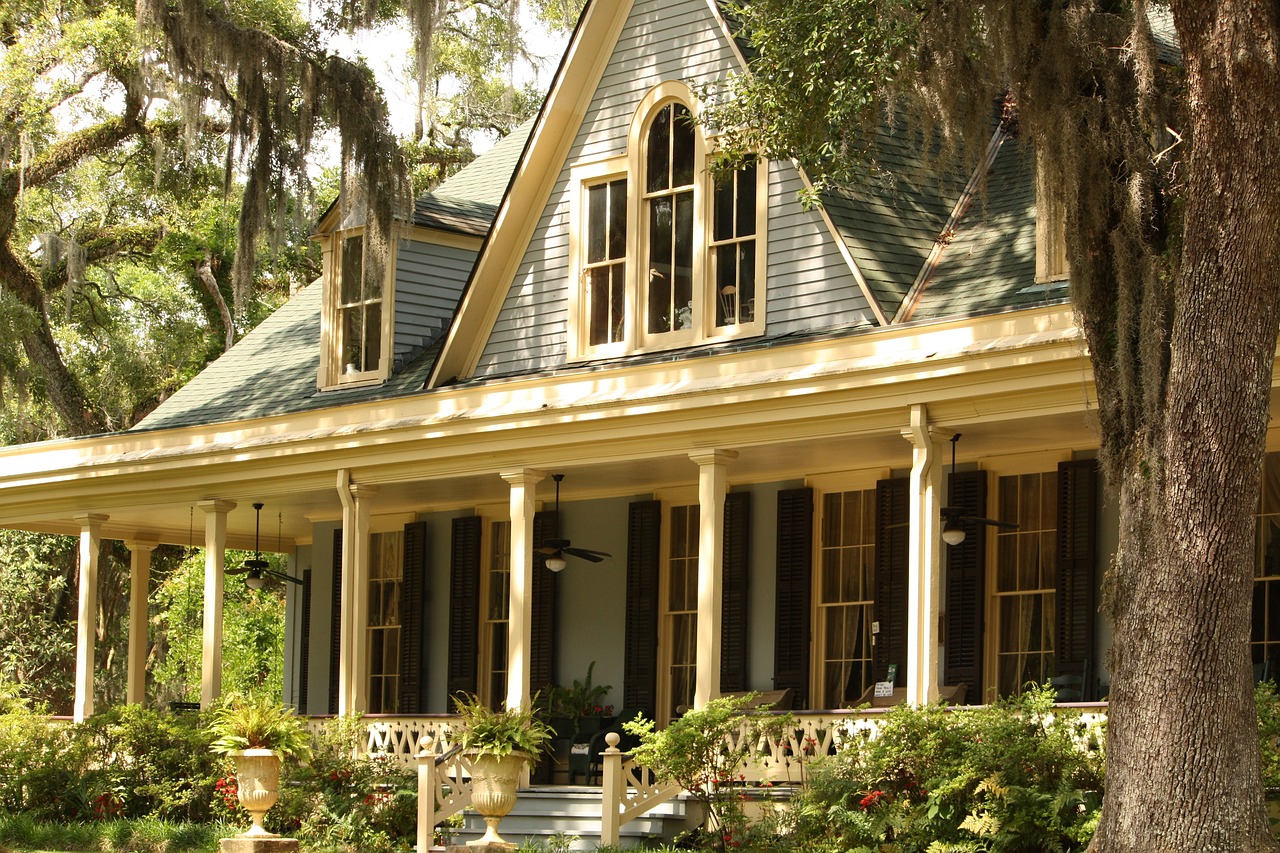
Potential Market Trends
As we look toward the horizon of virtual real estate, it's impossible to ignore the emerging market trends that are shaping the landscape of platforms like Decentraland. The digital world is not just a passing fad; it's becoming an integral part of our lives, and with it comes a surge in investment and interest. One of the most significant trends is the increased investment in virtual properties. Investors are recognizing the potential for high returns, much like the early days of traditional real estate. Just as savvy investors once bought land in booming cities, today's pioneers are snapping up virtual parcels in this new frontier.
Furthermore, the rise of virtual events is transforming how we socialize and conduct business. Think about it: just as physical venues host concerts and conferences, Decentraland allows users to create immersive experiences that can draw crowds from around the globe. This shift is not just a trend; it's a revolution in how we perceive space and interaction. As a result, businesses are flocking to the digital realm to host events, showcase products, and even conduct meetings, which in turn fuels demand for virtual real estate.
In addition to these trends, we also see a movement toward community-driven development. Users are not just passive consumers; they are active participants in shaping their environments. This collaborative spirit is leading to innovative projects that blend creativity with commerce. For instance, artists and developers are teaming up to create unique spaces that not only attract visitors but also foster a sense of belonging within the virtual community. This phenomenon is akin to how local businesses thrive in vibrant neighborhoods, drawing foot traffic and creating a buzz.
Moreover, the concept of digital scarcity plays a crucial role in the value of virtual real estate. Unlike physical land, which can be developed endlessly, Decentraland has a finite amount of land parcels represented by NFTs (Non-Fungible Tokens). This scarcity drives up demand, much like rare collectibles in the physical world. As more users flock to the platform, the competition for desirable locations intensifies, leading to a dynamic marketplace where prices can soar.
To summarize, the potential market trends in Decentraland and similar platforms indicate a vibrant future for virtual real estate. With increased investment, the rise of virtual events, community-driven development, and the allure of digital scarcity, we are witnessing a paradigm shift in how we view ownership and interaction in the digital realm. As these trends continue to unfold, they will undoubtedly shape the future of not just virtual real estate, but also the broader landscape of digital experiences.
- What is Decentraland? Decentraland is a decentralized virtual world where users can buy, sell, and develop virtual real estate using blockchain technology.
- How do I buy land in Decentraland? You can purchase virtual land in Decentraland through their marketplace using cryptocurrency.
- What can I build on my virtual land? Users can create a wide range of experiences, from art galleries to games, and even host virtual events.
- How do smart contracts work in Decentraland? Smart contracts automate transactions and ensure that agreements are executed without intermediaries, enhancing trust and efficiency.
- What are the risks of investing in virtual real estate? Risks include market volatility, potential coding errors in smart contracts, and the evolving nature of digital assets.
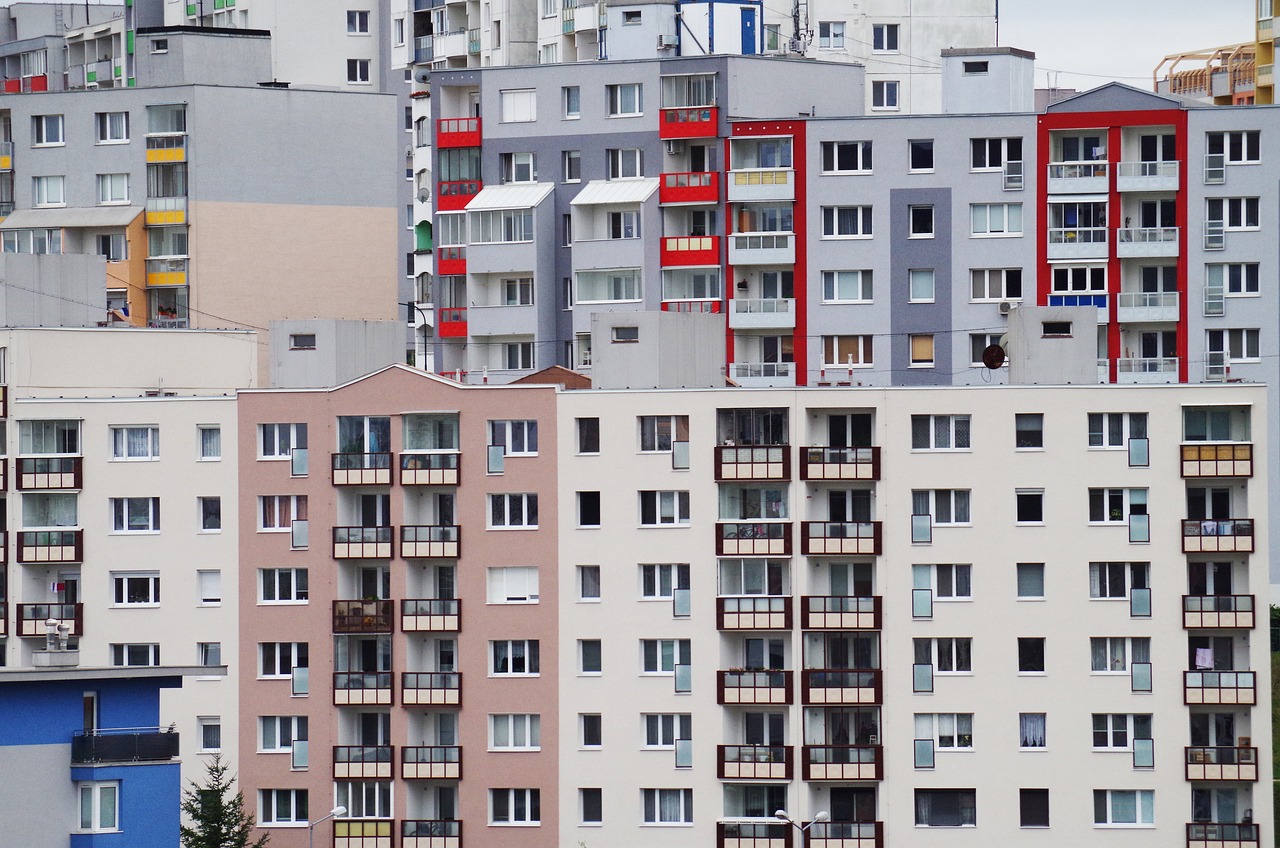
Impact on Traditional Real Estate
The emergence of platforms like Decentraland is reshaping the landscape of traditional real estate in ways that are both exciting and complex. Imagine a world where virtual properties can be bought, sold, and developed just like physical properties, but without the constraints of geographical boundaries. This shift is not just a trend; it represents a profound change in how we perceive ownership and investment in real estate.
As virtual real estate gains traction, it raises important questions about the future of physical properties. For instance, will investors start to favor digital assets over traditional properties? The allure of virtual land, where every transaction is recorded on a transparent blockchain, offers an enticing alternative to the often opaque dealings of the conventional real estate market. Moreover, the potential for high returns in a rapidly growing digital ecosystem is difficult to ignore.
Furthermore, the integration of virtual real estate into the mainstream could lead to new business models. Traditional real estate firms may find themselves adapting to a hybrid approach that includes both physical and virtual properties. Imagine real estate agents offering services for virtual land sales, or developers creating mixed-use projects that span both realms. This convergence could redefine what it means to invest in real estate.
However, the impact of Decentraland and similar platforms isn't just about investment; it also influences how we interact with spaces. Virtual environments provide unique opportunities for social engagement, entertainment, and commerce. This could lead to a shift in consumer behavior, where individuals spend more time in digital spaces, potentially reducing demand for physical locations like malls and office buildings. As we navigate this new territory, the question remains: how will traditional real estate adapt to these changing preferences?
To illustrate the potential impact on traditional real estate, consider the following table that outlines key differences between virtual and traditional properties:
| Aspect | Virtual Real Estate | Traditional Real Estate |
|---|---|---|
| Ownership | Decentralized, blockchain-based | Centralized, government-regulated |
| Transaction Speed | Instantaneous | Can take weeks or months |
| Cost of Entry | Varies, often lower | High due to physical assets |
| Market Hours | 24/7 accessibility | Limited by business hours |
As we look to the future, the potential for virtual real estate to influence traditional markets cannot be overlooked. It challenges existing paradigms and invites us to rethink our approach to property ownership and investment. The integration of virtual spaces into our daily lives is not just a possibility; it is becoming a reality. The question now is how quickly traditional real estate will adapt to this new digital frontier.
- What is Decentraland? Decentraland is a decentralized virtual reality platform that allows users to buy, sell, and develop virtual real estate.
- How does blockchain technology benefit Decentraland? Blockchain technology ensures transparency and security in transactions, giving users true ownership of their virtual assets.
- What are smart contracts? Smart contracts are self-executing contracts with the terms of the agreement directly written into code, facilitating transactions without intermediaries.
- Can I make money in Decentraland? Yes, users can monetize their virtual properties through various strategies such as ticket sales, advertising, and selling virtual goods.
- Will virtual real estate replace traditional real estate? While virtual real estate is gaining popularity, it is more likely to coexist with traditional real estate, influencing how we view property ownership and investment.
Frequently Asked Questions
- What is Decentraland?
Decentraland is a decentralized virtual reality platform built on blockchain technology. It allows users to buy, sell, and develop virtual real estate, creating a unique space for digital ownership and social interaction.
- How does blockchain technology work in Decentraland?
Blockchain technology ensures transparency and security in transactions within Decentraland. It allows users to truly own their virtual assets without the need for a centralized authority, making every transaction verifiable and secure.
- What are smart contracts, and how do they function in Decentraland?
Smart contracts are self-executing contracts with the terms of the agreement directly written into code. In Decentraland, they facilitate transactions, automate processes, and enhance trust among users by eliminating the need for intermediaries.
- What are the benefits of using smart contracts?
Smart contracts offer several advantages, including reduced transaction costs, increased efficiency, and a significant reduction in fraud. These features are crucial for the smooth operation of Decentraland's economy.
- What challenges do smart contracts face?
Despite their benefits, smart contracts can encounter challenges such as coding errors and legal ambiguities. These issues can lead to disputes and complications in the virtual real estate market, highlighting the importance of careful programming and legal considerations.
- How is land ownership represented in Decentraland?
In Decentraland, virtual land ownership is represented by Non-Fungible Tokens (NFTs). This allows users to buy, sell, and trade parcels of land, creating a vibrant marketplace for virtual real estate.
- Can users build on their virtual land in Decentraland?
Absolutely! Users can create unique experiences and applications on their virtual land, fostering creativity and innovation. This not only enhances the platform but also contributes to the overall ecosystem of Decentraland.
- What types of developments can be created in Decentraland?
The possibilities are endless! From art galleries and gaming experiences to virtual shops and social spaces, users can express their creativity in various ways, attracting visitors and building communities.
- How can developers monetize their creations in Decentraland?
Developers can monetize their virtual real estate through various strategies, including ticket sales for events, advertising, and selling virtual goods. This turns their investments into profitable ventures.
- What does the future hold for virtual real estate in Decentraland?
As Decentraland evolves, it is likely to influence the future of virtual real estate significantly. Emerging trends, such as increased investment and the rise of virtual events, indicate a growing interest in platforms like Decentraland.
- How might Decentraland impact traditional real estate markets?
The rise of virtual real estate could have a profound impact on traditional real estate markets. It may prompt new business models and innovative approaches to property ownership and investment, blending the lines between the digital and physical worlds.

